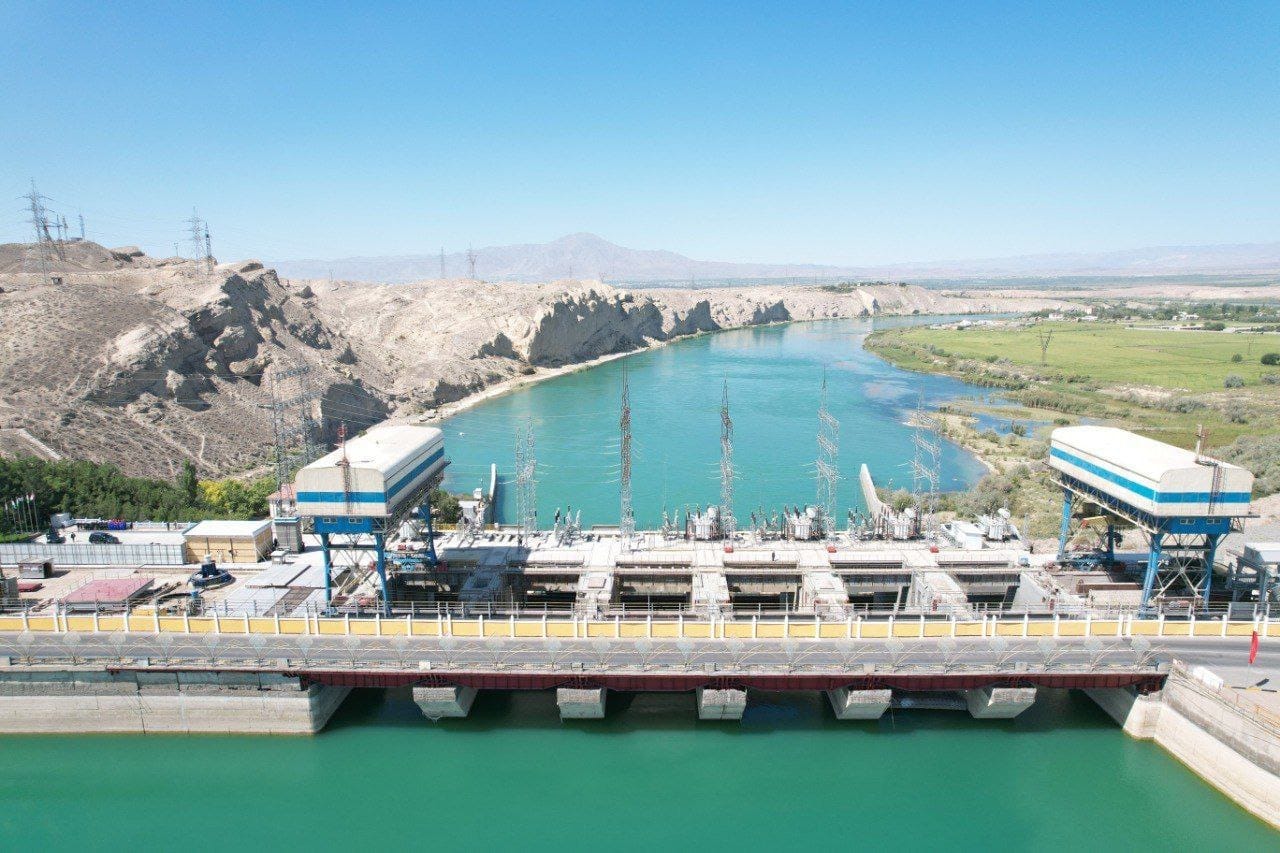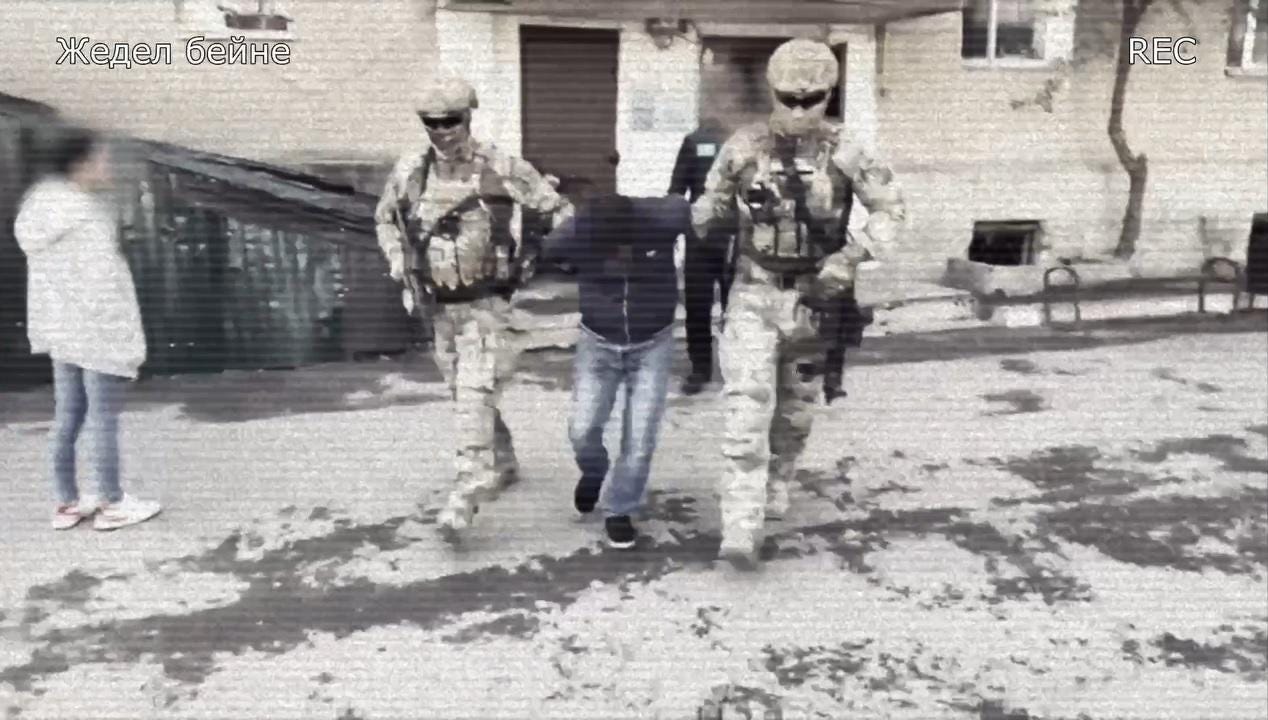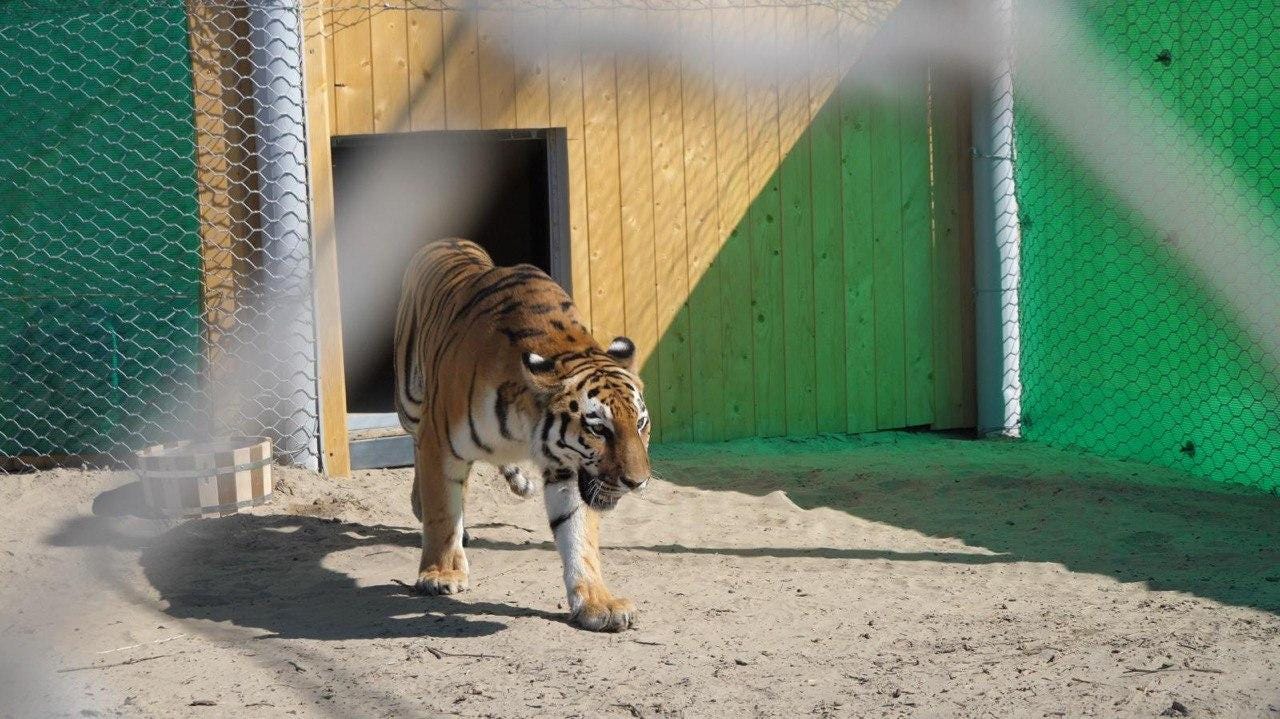Central Asia's week that was #23
Electricity shortages in Tajikistan, organised crime in Kazakhstan, poverty-reduction in Uzbekistan. Also, new cotton varieties, tigers, and e-bikes.
So this happened…

Tajikistan imposed electricity rationing over concern at low water levels at its hydropower plants. Hydroelectricity accounts for 90 percent of the country’s power needs. Rural areas are now being supplied with around eight to 10 hours of electricity daily. State-run power company Barki Tojik is forecasting an electricity shortfall of more than 1 billion kilowatt hours over autumn and winter, when hydroelectric generation tends to be at its lowest. Although Tajikistan is forced to resort to rationing in the coldest months of the year, it has ambitions to become a major exporter of electricity by further developing its hydropower potential. The government’s 2030 development strategy envisions ramping up electricity generating capacity from 5.1 gigawatts in 2022 to 10 gigawatts by the end of the decade.
Kazakhstan and Uzbekistan agreed to install automated water metering systems at 10 stations along the Syr Darya River to improve accuracy in measuring water consumption. This initiative aims to enhance regional cooperation, reduce disputes, and ensure transparency in water usage. Kazakhstan is seeking funding and support from international financial organisations to implement the project. Negotiations on water distribution among the five Central Asian nations are routinely conducted through the Interstate Commission for Water Coordination. The next scheduled session will focus on managing water resources flowing through the system of interconnected reservoirs and hydropower stations located along the Naryn and Syr Darya rivers.
Law enforcement agencies in Kazakhstan detained more than 50 people in a nationwide operation targeted at organised crime. Simultaneous raids were carried out in Astana, Almaty, Shymkent, and in several other locations across the country. Officials said the suspects face charges of stealing more than 2 billion tenge ($42 million) from more than 20 individuals and directing the funds toward the activities of an organised criminal enterprise. The detainees are also said to have links to extremist religious groups. This detail points to persisting anxieties among security officials over the ways in which the criminal underworld and radical Islamic movements interact in Kazakhstan. The policy of withholding details on investigations and trials from the public makes it difficult to usefully assess the scale of this phenomenon, however.
Lawmakers in Uzbekistan approved legislation to empower the government to designate foreign nationals as “undesirable” if their conduct and speech are deemed a threat to national security. Offenders will be included in a government registry for five years, during which they will be barred from entering the country. No clear explanation has been offered for the specific reason behind this legislation. The Uzbek government has long reserved the right to arbitrarily forbid entry to people it deems suspect. This category has customarily consisted mainly of rights advocates and journalists. One line of speculation is that the remarks of chauvinist Russian politicians and activists questioning the legitimacy of Uzbek statehood served as a catalyst for this new legislation.
Uzbekistan has set aside 1,000 square kilometres for planting varieties of cotton from China, India, and Turkey as part of an experiment designed to increase yields and improve crop quality. Under the same initiative approved by President Shavkat Mirziyoyev, timeframes for the testing and approval of new seed varieties — a process that can currently take up to five years — will be more than halved. Uzbekistan is one of the world’s largest producers of cotton, but the industry has historically been characterised by state-controlled production reliant on problematic practices such as forced labour, child labour and the wasteful use of water. Cotton in Uzbekistan is grown across 136 districts over an area of 10,000 square kilometres.
Uzbekistan is creating a registry of low-income families as a tool to help better design its social assistance and poverty-reduction initiatives. The government earlier this month unveiled a program dubbed “From Poverty to Prosperity” that is designed to create job opportunities, reduce household outgoings and broaden opportunities for aspiring entrepreneurs. In a speech earlier this month, President Mirziyoyev described the poverty reduction agenda as a “nationwide movement” that would need input from officials at all levels. According to official estimates, around 7.5 million people (23 percent of the population), lived below the poverty line in 2020 in Uzbekistan. Those figures have since fallen to 3.5 million and 11 percent, respectively.
And there’s this too…
The value of Kazakhstan-based fintech giant Kaspi’s shares plummeted on the NASDAQ exchange following allegations that it enabled Russia to circumvent Western sanctions. Kaspi chief executive Mikhail Lomtadze rejected the claims, which were published by self-styled activist short seller Culper Research, as a “typical speculator attack designed to allow short-sellers to make a quick profit.” Kazakhstan’s financial market regulator also weighed in to state that Kaspi was fully compliant with the anti-Russia sanctions regime imposed by the United States, the European Union and others. Kaspi occupies a ubiquitous position in Kazakhstan’s economy and society. Around 14 million people — some three-quarters of the population — regularly use the company’s services.
Kazakhstan received a pair of Amur tigers from the Netherlands as part of a project to restore the ecological role of the extinct Caspian tiger. The tigers, named Bogdana and Kuma, will be housed at a purpose-built enclosure in the Ile-Balkhash nature reserve, in the Almaty region. The plan is for their offspring to be released into the wild. An additional three to four tigers are scheduled to be delivered from Russia next year to contribute to this effort. The broad consensus is that the last of the Caspian tigers (also known as the Turanian tiger) was killed in the 1970s. The species had already been in terminal decline for decades due to hunting and habitat loss.
Yandex Uzbekistan, the local affiliate of a Russia-based taxi-hailing and food delivery company, will equip its couriers in Tashkent with electric bicycles from next month. The company says the e-bikes will be fitted with technology that ensures riders comply with speed limits. While this allows for the welfare of pedestrians, it is uncertain how safe the couriers will be. Tashkent authorities have made little effort toward creating viable infrastructure for active mobility. Yandex is taking a firm lead on innovation in the food delivery sector across the region. Yandex’s Kazakhstan affiliate announced earlier this month that it had begun using wheeled robots in parts of Almaty to dispatch food orders to customers.
Lawmakers in Kazakhstan approved new regulations for moped drivers to treat them as full participants in road traffic. Under these changes, moped riders must now register their vehicles, undergo annual technical inspections, and obtain mandatory insurance. The ever-growing problem of traffic snarls in cities like Almaty and Astana has significantly increased the appeal of small motorised vehicles. But car drivers and pedestrians alike complain of the reckless behaviour of moped and e-scooter users. Police in Almaty report that they registered 463 accidents — and seven fatalities — involving mopeds and electric scooters in the city in the first six months of 2024. Sixty-eight of the incidents involved children operating the vehicles.
The Central Asia Barometer (CAB), a think tank that conducts opinions polls in the region, announced it is suspending operations as it is finding it increasingly unsafe to conduct “ethical survey research.” The organisation said in a statement that it hopes to resume its activities in the future, but gave no indication of when that could happen. CAB offered no specifics on the nature of the difficulties it has confronted. Independent organisations working in Central Asia to produce credible analyses on public attitudes to sensitive social and political issues are sparse to non-existent. Research topics recently studied by CAB include local attitudes toward domestic violence and Russia’s war in Ukraine.
The Supreme Court of Kazakhstan ruled in favour of a schoolgirl who was barred from attending classes for wearing a headscarf. The decision overturns earlier rulings from lower courts. The case originated in the West Kazakhstan region, where the girl was denied entry for allegedly wearing a headscarf in violation of the school’s dress code. The girl's lawyer stated that the court found the school's actions infringed on her fundamental right to education. Kazakh officials have carefully balanced respecting religious sensibilities with concerns about allowing stricter interpretations of Islam in public institutions.






